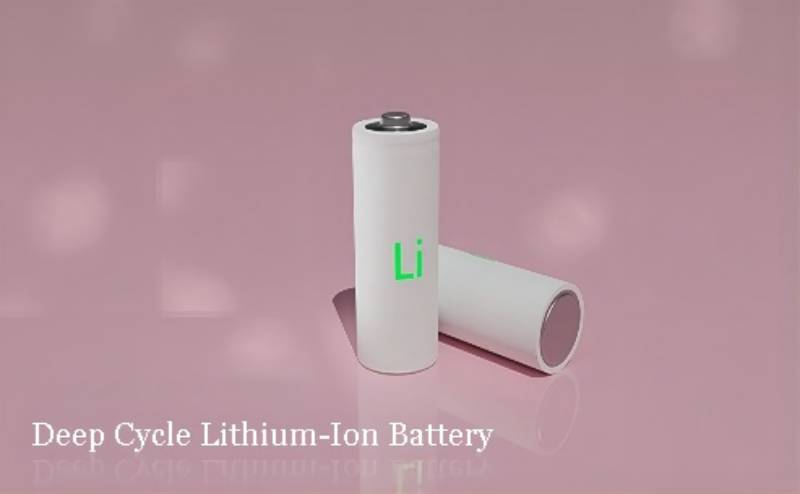
Main content:
- 1.What Is The Difference Between A Deep-Cycle Battery And A Lithium Battery?
- 2.What Is The Life Expectancy Of Deep Cycle Lithium Battery?
- 3.What is the Difference between a Lithium Deep-Cycle Battery and a ordinary battery?
- 4.The difference between lithium-ion deep-cycle batteries and lead-acid batteries.
- ①Outlasts a Conventional Lead-Acid Battery
- ②Quick, Efficient, and Lightweight
- ③Environmentally Friendly, Non-hazardous, and 'Greener'
- 5.Do You Need A Special Charger For Lithium Deep Cycle Batteries?(Charging mode of lithium-ion batteries)?
Deep cycle lithium ion battery is ideal for camping, fishing, outdoor research, etc. You can even use it as your RV battery or a boat battery. The last thing you'd want is to have a battery that isn't powerful enough to sustain your outdoor activities. Lead-acid batteries have been in use for at least 100 years now. Quite frankly, these batteries are now dated. It would be best if you’d shift to an advanced battery, like lithium ion battery. This article is intended to help understand why Li-ion batteries are ideal for you. Let’s dig right in!
1.What Is The Difference Between A Deep-Cycle Battery And A Lithium Battery?
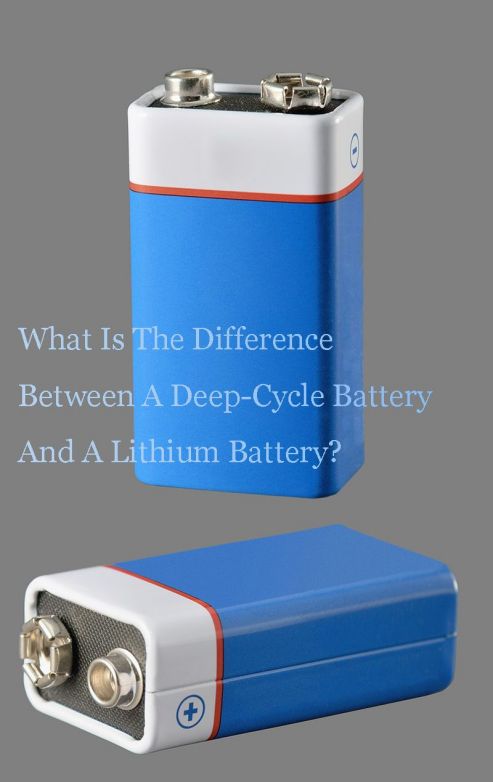
Lithium batteries have much higher energy than ordinary batteries, which means that the energy per unit volume is higher than others. The working voltage of a lithium battery is long-lasting. This is due to the voltage of a lithium battery being 3.7V, while the maximum charge is 4.2V. Therefore, Lithium batteries are particularly useful in powering phones, laptops, and cameras compared to regular batteries. Lithium batteries are environmentally friendly and pollution-free. Since Lithium batteries do not contain any heavy metals or pollutants, they are safe to throw away. Regular deep cycle batteries could lead to Mercury and Radium poisoning. Lithium batteries have broad development prospects and high-cost performance. Since Lithium batteries have an efficient charge-discharge cycle, they have uses in many fields. Lithium batteries can also be cheaper than deep-cycle batteries making cost-effectiveness another attractive feature.
2.What Is The Life Expectancy Of Deep Cycle Lithium Battery?
Deep Cycle Lithium batteries have a long life if properly maintained.Most lithium-ion deep cycle batteries can cycle up to 4,000 times and reach 80% discharge depth (DOD) at this time, about three times more than a generic lead-acid battery. The smooth current and voltage flow in the battery leads to a long life as this prevents excessive wear or damage to the internal components.
3.What is the Difference between a Lithium Deep-Cycle Battery and a ordinary battery?
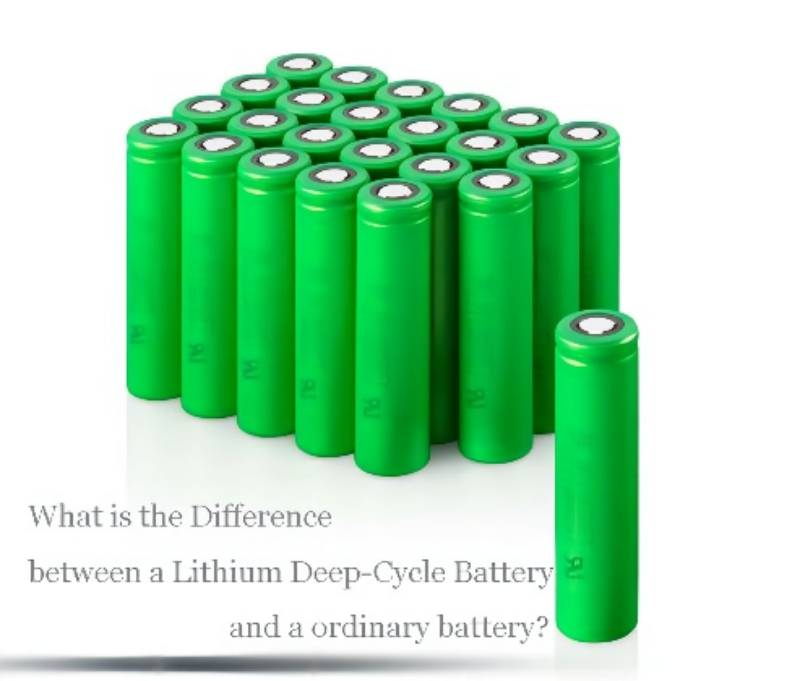
Lithium batteries have much higher energy than ordinary batteries, which means that the energy per unit volume is higher than others. The working voltage of a lithium battery is long-lasting. This is due to the voltage of a lithium battery being 3.7V, while the maximum charge is 4.2V. Therefore, Lithium batteries are particularly useful in powering phones, laptops, and cameras compared to regular batteries. Lithium batteries are environmentally friendly and pollution-free. Since Lithium batteries do not contain any heavy metals or pollutants, they are safe to throw away. Regular deep cycle batteries could lead to Mercury and Radium poisoning. Lithium batteries have broad development prospects and high-cost performance. Since Lithium batteries have an efficient charge-discharge cycle, they have uses in many fields. Lithium batteries can also be cheaper than deep-cycle batteries making cost-effectiveness another attractive feature.
4.The difference between lithium-ion deep-cycle batteries and lead-acid batteries.
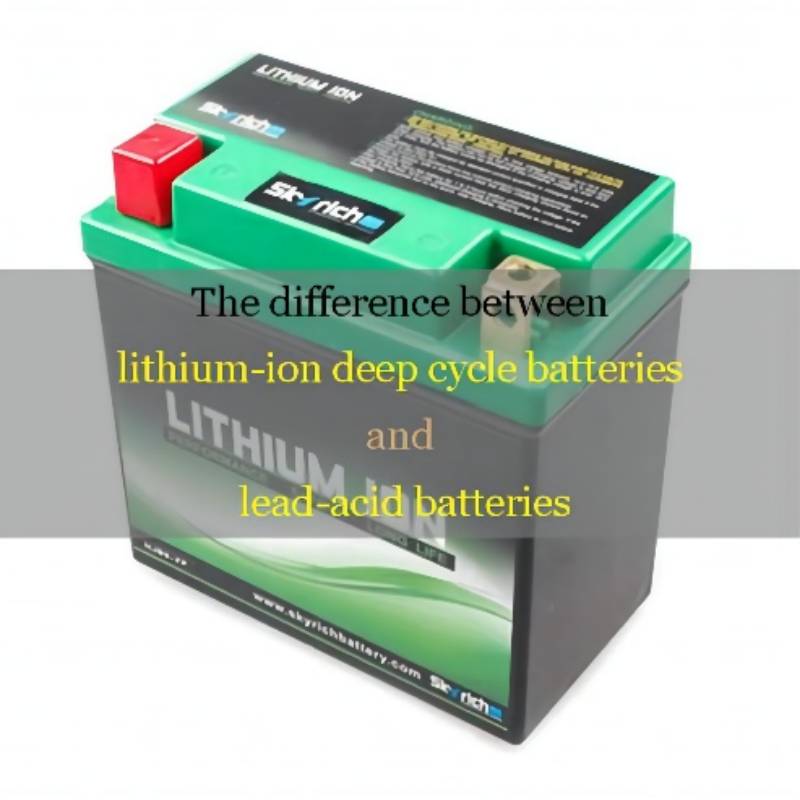
Having a lead-acid battery for your outdoor activities can be painful. Their cost of maintenance and regular replacement is high. Further, you cannot ignore the dangers associated with combustible acid mist. Here are three key reasons why you need a modern deep cycle lithium-ion battery over a lead-acid battery:
① Outlasts a Conventional Lead-Acid Battery
Li-ion batteries have a longer life compared to conventional lead-acid batteries. Most lithium-ion deep cycle batteries can cycle up to 4,000 times and reach 80% discharge depth (DOD) at this time. These batteries can also fail prematurely, meaning that they may not reach the two-year mark. Improper maintenance can further reduce its life. You can completely drain the Li-ion battery without damaging it, which is impossible with lead-acid batteries. They can only be drained down to 50%. Although lithium-ion batteries can be completely exhausted, it is not recommended to do so often, affecting the life of lithium-ion batteries. Apart from having a longer life, Li-ion batteries are also economical maintenance. They do not need any active care, such as adding water and cleaning. Here’s the deal: A deep cycle Li-ion battery will save money intended for battery maintenance and replacement. Apart from that, it has a longer service life, so it is more durable. Quick, Efficient, and Lightweight
② Quick, Efficient, and Lightweight
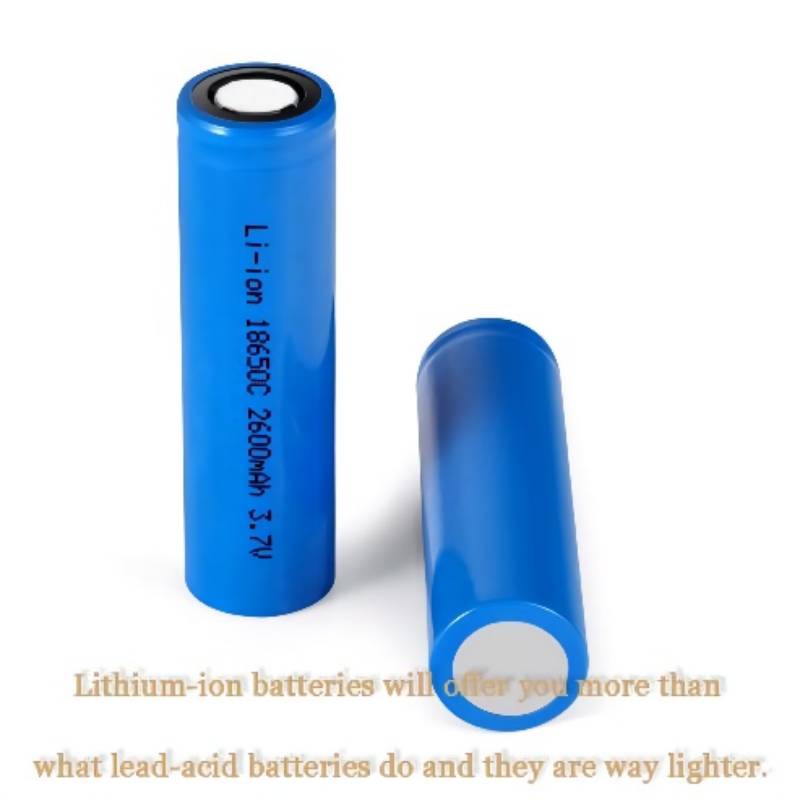
Deep cycle Li-ion batteries are super quick - they can charge and discharge quickly, depending on the application. It would be best if you indeed had a battery that charges quickly because it reduces downtime. That’s not all: The best part of it is that the deep cycle Li-ion batteries are super lightweight. They weigh almost a third of the weight of a conventional lead-acid battery. Bottom line: Lithium-ion batteries will offer you more than what lead-acid batteries do and they are way lighter.
③ Environmentally Friendly, Non-hazardous, and 'Greener'
Deep cycle Li-ion batteries are environmentally friendly compared to lead-acid batteries. These batteries do not contain hazardous materials compared to lead-acid batteries. Exposure to lead can cause severe damage to your brain, kidneys, anemia, and eventual death. On top of that, both battery types can be recycled, giving the Li-ion battery an upper hand in terms of environmental friendliness. In terms of recycling, lithium-ion batteries have a higher application value.
5.Do You Need A Special Charger For Lithium Deep Cycle Batteries(Charging mode of lithium-ion batteries)?
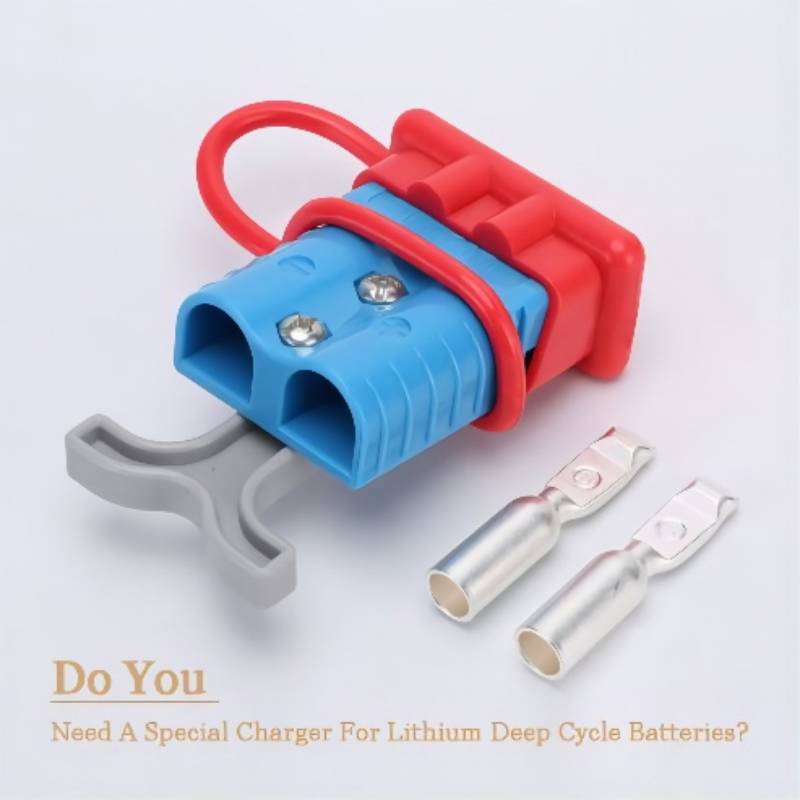
If you care so much about the lifespan and performance of your lithium deep cycle battery, it only makes sense that you charge it the right way. Thanks to its low resistance, you can easily recharge your lithium deep cycle battery by using solar panels, AC and DC to DC battery chargers. Lithium Deep Cycle batteries need a special charger with a constant current and voltage flow. The voltage limit is a vital factor to consider when looking for a charger for deep cycle Lithium batteries. Lithium-ion deep cycle batteries require professional chargers because of the lead-acid charger has an automatic equalization mode, it might not be compatible with a deep-cycle lithium battery. Trickle charging is unacceptable for deep cycle Lithium battery charging because it could damage the Lithium metal, rendering the battery hazardous. The best way to recharge a deep cycle Lithium battery is to provide a constant current at the same voltage. When it comes down to finding the best battery technology to meet all our energy needs, lithium may seem like just a tiny part of the bigger picture, but so far, it has proven to be quite a reliable option.
















